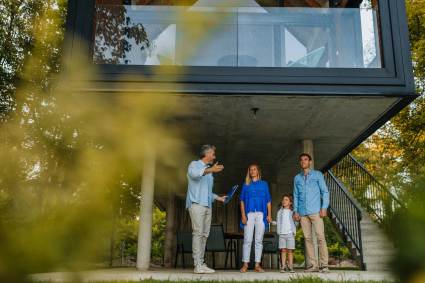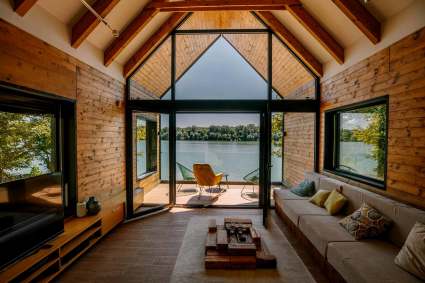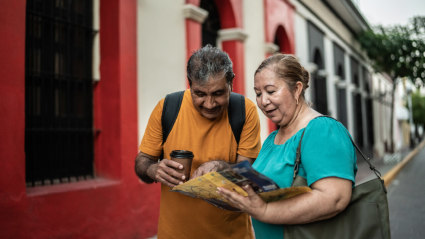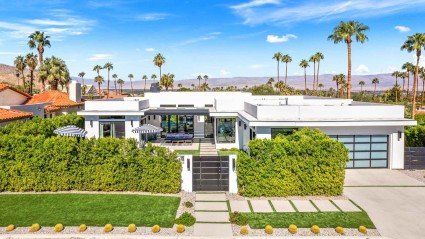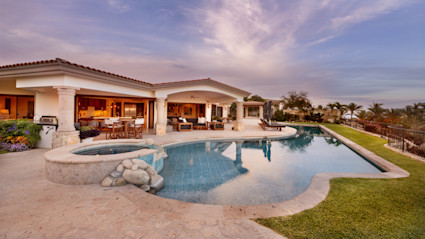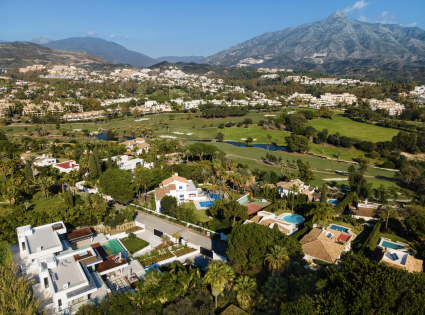Buying a second home while renting the first
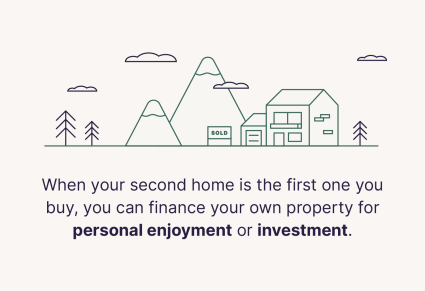
- Inflation
- Increased interest rates
- Rising home prices
- A lack of supply in metropolitan areas
The pros and cons of buying a second home first
| Pros | Cons |
| Potential for additional income from renters | The monthly outlay for a second home mortgage and primary home rent |
| Personal property for vacations and remote work | Home maintenance and management from afar |
| Potential resale profits and property appreciation | Property depreciation possibilities |
| Certain tax breaks and advantages | Unpredictable renter behavior |
| Lifestyle flexibility | Feeling obligated to vacation there |
| Potential for larger indoor and outdoor areas | Cost and reliability of utilities in some destinations |
Pros of buying your second home first
Before deciding to purchase your second home while continuing to rent your first home, it’s important to identify the benefits of this type of home ownership.For example, second home ownership of this nature can afford certain benefits like:- Potential for additional income from renters, which can help offset the expenses of a second home
- Personal property for vacations and weekend getaways
- Potential resale profits and property appreciation, which can be used in the future to purchase a primary residence
- Certain tax breaks and advantages when reporting secondary income and mortgage interest
- Larger indoor and outdoor property possibilities, including yard space and additional bedrooms, bathrooms or flex spaces
- Lifestyle flexibility for those wanting to split their time between different living environments
- Getaways for remote workers away from their primary home base
Cons of buying your second home first
The challenges of buying your second home first important to keep in mind when exploring this path of second home ownership.Buyers should be aware of these second home ownership challenges:- Multiple home payments can put a strain on finances if not budgeted correctly.
- Property depreciation (rather than appreciation) is possible due to changing real estate markets and property placement.
- Home maintenance and management from afar can be costly, especially if the repairs are unplanned or urgently needed.
- Unpredictable renter behavior can lead to costly repairs.
- Owners may feel obligated to vacation at their second home rather than go to another vacation destination.
- Costs and reliability of utilities vary in off-grid or remote destinations where homes can be hard to reach.
6 elements to weigh before buying a second home first
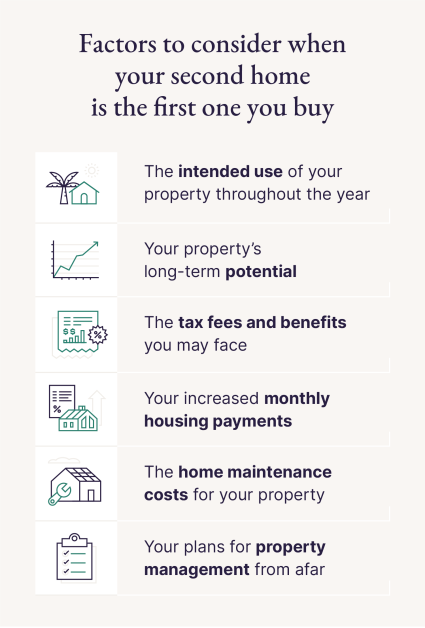
Intended use
How do you intend to use your property? Will it be for personal use as a vacation home or do you intend to rent it out full- or part-time? How you intend to use your second home will affect mortgages, taxes and property management.Potential
What is the long-term investment potential of your property, as either a vacation home or rental property? Buying a second home first can be an investment in property ownership. Of course, housing markets fluctuate, so equity gains and losses are dependent on where you buy.Taxes
Before purchasing your second home, consider taxes — particularly vacation home taxes. If you choose to lease out your second home as a rental property, you may be required to report the income you make and deduct your home expenses on your taxes, depending on the classification of the property. However, there are also some major second home tax deductions to consider as well. Many filers can deduct mortgage interest and property taxes, while income earned from renting a property less than 14 days a year does not need to be reported. Before buying, you might want to consult with a tax professional.Mortgage rates
Mortgages for vacation homes, investment properties and primary residences are all different, and mortgage loans for primary residences are usually easier to obtain than others. When your second home is the first one you buy, it’s important to consider how you will use the property before applying for a mortgage.Vacation home loans and investment properties also have higher interest rates than traditional loans — investment mortgage rates can climb as high as 0.75% higher than a general loan. If you plan to spend time in your second home throughout the year, it might be best to register your property as a vacation home to secure a mortgage rate that is usually about 0.5% higher than those for a primary residence.Home maintenance costs
Owning a second home means taking care of the property and ground. On average, home maintenance costs for secondary and rental properties are estimated to be 1% of the home’s overall property value. For example, a home valued at $150,000 will likely need approximately $1,500 in maintenance each year. Maintenance costs will, of course, vary depending on the size of your home and where it is. In addition to the general maintenance of the home and yard, you may need to invest in specific siding or roofing materials to accommodate a homeowners association.Property management
If your second home is a good distance from your primary residence, you will need to consider how to manage your property from afar. You may need to consider hiring a property manger to handle the day-to-day operations of your property. The property manager is responsible for things like collecting rent from tenants, setting rent prices to fit the market, seeking out and approving new tenants, coordinating leases and following up on maintenance requests.FAQs
01: Can a second home be considered a primary residence?
A second home cannot be considered a primary residence if you do not spend the majority of the year living there. Additionally, properties cannot be both a secondary home and a primary residence at the same time.
02: Is it harder to get a mortgage for a second home?
There are often stricter requirements and higher interest rates for second home mortgages compared to those for a primary residence. It is also possible that a secondary residence mortgage will require additional qualifications, including a down payment, cash reserves and good credit.
Navigating the ins and outs of vacation home ownership — especially when your second home is the first one you buy — is simpler when you co-own a fully managed home with Pacaso. You reap the benefits of home ownership while sharing the costs with other owners and leaving the management hassles to us. Plus, you can own property in some of the most desirable second home destinations in the world.

